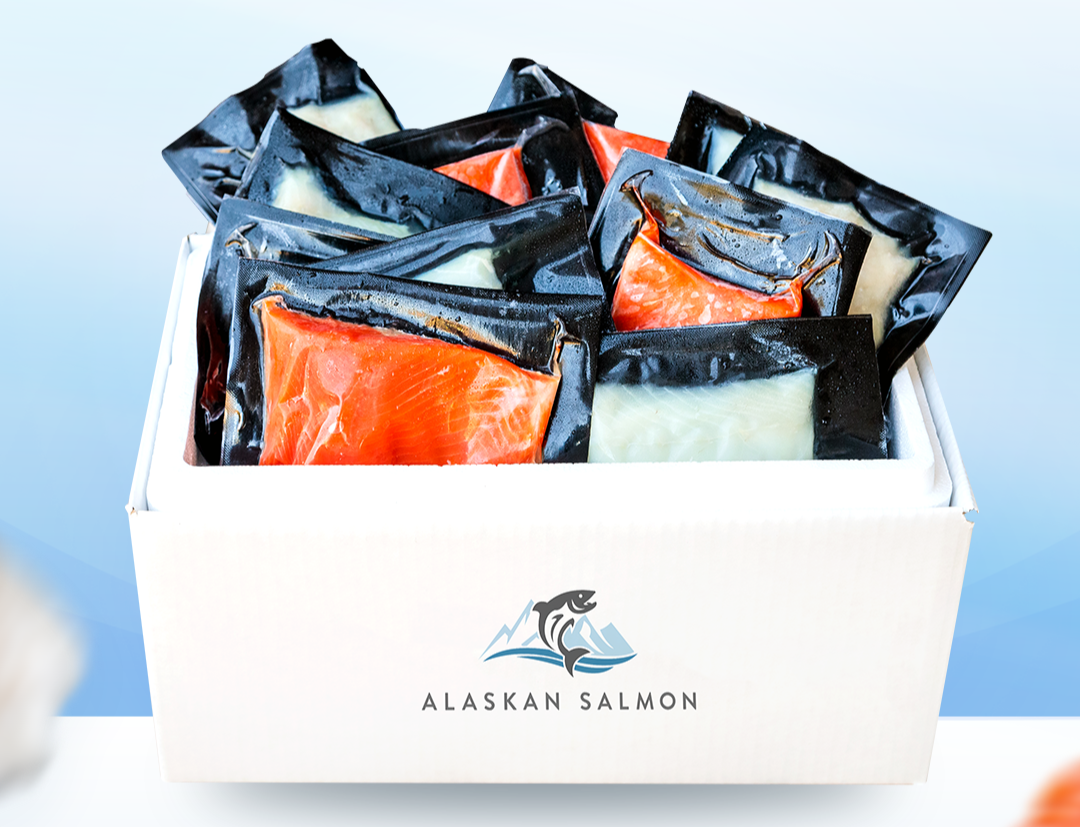Is Salmon Good for Weight Loss?
Updated on May 29, 2023
In the ever-evolving quest for effective weight loss strategies, the key to success lies not only in reducing caloric intake but also in making smart, nutritious choices. One such nutritional powerhouse is salmon. While renowned for its delicious taste and versatility in culinary preparations, salmon also boasts a plethora of health benefits, including its remarkable ability to aid in weight loss.
Salmon, a fatty fish primarily found in the cold waters of the Atlantic and Pacific oceans, is revered for its high protein content, rich omega-3 fatty acids, and a wide array of essential vitamins and minerals. These nutritional components not only contribute to overall well-being but also play a significant role in supporting weight loss endeavors.
In this article, we delve into the culinary versatility of salmon for weight loss meals, exploring the various mechanisms through which this remarkable fish can assist in shedding those stubborn pounds.
Can Eating Salmon Help You Lose Weight?
Eating salmon can potentially help with weight loss, but it's not a magic solution on its own.
Salmon is a great source of protein, which is an essential nutrient for weight loss. Protein helps keep you feeling full for longer periods of time, which can help you eat fewer calories overall. Additionally, the omega-3 fatty acids found in salmon have been shown to improve insulin sensitivity, which can help regulate blood sugar levels and potentially reduce cravings for sugary or high-carbohydrate foods.
However, it's important to note that eating salmon alone won't necessarily cause weight loss. To lose weight, you need to create a calorie deficit by consuming fewer calories than you burn through physical activity and other daily activities. Eating salmon can be a healthy and nutritious part of a balanced diet, but it's important to also pay attention to portion sizes and overall calorie intake.
While eating salmon can potentially help with weight loss, it should be part of an overall healthy and balanced diet and lifestyle that includes regular exercise and calorie control.
Which Type of Salmon is Best for Weight Loss?
When it comes to weight loss, the best type of salmon to consume is wild caught salmon. Wild salmon is generally lower in calories and fat than farmed salmon, and it also contains higher levels of omega-3 fatty acids, which can help improve insulin sensitivity and regulate blood sugar levels.
Additionally, when preparing salmon for weight loss, it's important to avoid adding high-calorie sauces or toppings that can negate its nutritional benefits. Instead, try grilling or baking your salmon with simple seasonings like lemon, garlic, and herbs for added flavor without added calories.
It's also important to pay attention to portion sizes when consuming salmon for weight loss. A serving size of salmon is typically around 3-4 ounces, which provides around 20-25 grams of protein and around 150 calories. Consuming larger portions or adding high-calorie toppings can quickly add up in terms of calories, so it's important to practice portion control and balance your meals with other nutrient-dense foods like vegetables and whole grains.
Here is a breakdown of the top wild-caught salmon species and their caloric value.
| Type of Salmon (3oz) | Calories | Fat |
| King | 196 calories | 11.3 grams |
| Wild | 155 calories | 6.9 grams |
| Atlantic | 133 calories | 5.7 grams |
| Coho | 120 calories | 3.7 grams |
Other Health Benefits of Salmon Besides Weight Loss
Salmon is an incredibly nutritious food with numerous health benefits beyond weight loss. Here are some of the other benefits of consuming salmon:
- Heart health: The omega-3 fatty acids found in salmon are great for heart health. They can help reduce inflammation, lower blood pressure, and decrease the risk of heart disease.
- Brain function: The high levels of omega-3 fatty acids in salmon have also been linked to improved brain function and reduced risk of cognitive decline and dementia.
- Eye health: Salmon is a great source of a type of omega-3 fatty acid called DHA, which is important for eye health and has been linked to a reduced risk of macular degeneration.
- Bone health: Salmon is high in vitamin D, which is essential for strong bones and may help reduce the risk of osteoporosis.
- Skin health: The omega-3 fatty acids in salmon can help reduce inflammation and improve skin health, leading to a more youthful and radiant complexion.
- Muscle and tissue repair: Salmon is a great source of protein, which is essential for muscle and tissue repair and growth.
- Immune system support: The high levels of vitamin D and omega-3 fatty acids in salmon may also help support the immune system and reduce the risk of infections.
Overall, salmon is a highly nutritious food with a wide range of health benefits.
How to Cook Salmon for Weight Loss
When it comes to cooking salmon for weight loss, it's best to opt for cooking methods that minimize the addition of extra fats and calories. Try the following methods:
- Baking: Preparing salmon in the oven allows it to cook gently without the need for excessive added fats.
- Grilling: This method imparts a smoky flavor to the fish without the need for added fats. Grilling also allows any excess fat to drip away from the fish, making it a healthier choice.
- Steaming: Steaming is a gentle cooking method that helps preserve the nutrients and natural flavors of salmon. Steaming requires no added fats or oils, making it a calorie-conscious option.
- Poaching: Poaching salmon involves cooking it in a flavorful liquid, such as water, broth, or a mixture of herbs and spices. This method is gentle and doesn't require additional fats or oils.
Healthy Salmon Recipes for Weight Loss
Here are three simple and healthy salmon recipes that are great for weight loss:
Simple Spiced Salmon Lettuce Boats
Keto salmon does an excellent job of making you feel satiated for longer periods, reducing the likelihood of overeating. Paired it with romaine lettuce boats, which are low in carbohydrates and ideal for a ketogenic diet.
Add a few tomatoes to provide essential vitamins, minerals, and fiber. These high-fiber vegetables aid in digestion and help regulate blood sugar levels, making for a healthy metabolic shift.
Read the full recipe here.
Avocado Toast with Beet Cured Alaskan Salmon
Beet-curing salmon is an excellent way to enhance fiber, aiding in digestion, supporting healthy bowel movement, and promoting satiety. In addition, avocado is packed with heart-healthy monosaturated fats, aiding in nutrient absorption.
Together, this spectacular recipe is filling, rich in omega-3 fatty acids that reduce inflammation, and a great way to support a healthy metabolism.
Read the full recipe here.
Teriyaki Salmon Rice Bowl
Contrary to popular belief, rice bowls can be delicious and nutritious. Substitute regular teriyaki sauce with a version with reduced sugars and add a natural burst of sweetness with mango. Mango is a great source of dietary fibers, aiding in digestion and promoting fullness.
Throw in a dash of edamame, which are protein and fiber-rich.
Read the full recipe here.
Frequently Asked Questions
How much salmon should I eat to lose weight?
The amount of salmon you should eat to lose weight depends on a variety of factors, such as your individual calorie needs, physical activity level, and overall dietary patterns. However, as a general guideline, a serving size of salmon is typically around 3-4 ounces, which provides around 20-25 grams of protein and around 150 calories.
It's recommended that adults consume at least 2 servings of seafood per week, including oily fish like salmon, and to pair meals with vegetables and whole grains.
Is salmon good for belly fat?
While salmon can be good for reducing belly fat, reducing overall body fat, including belly fat, requires a combination of a healthy diet, regular exercise, and a healthy lifestyle.
That being said, salmon is a nutrient-dense food that is low in calories and high in protein, which can help you feel full and satisfied, making it easier to stick to a healthy eating plan. Additionally, the omega-3 fatty acids found in salmon have been linked to improved insulin sensitivity and reduced inflammation, which can help regulate blood sugar levels and reduce the risk of metabolic disorders that contribute to belly fat.
Is salmon skin good for weight loss?
Salmon skin is a good source of healthy fats, including omega-3 fatty acids, which can be beneficial for weight loss. However, salmon skin is also high in calories and saturated fat, so it's important to consume it in moderation as part of a balanced diet.
If you're trying to lose weight, it's generally recommended to remove the skin from salmon before cooking it, as this can help reduce the overall calorie and fat content of the dish.
The Bottom Line
In the grand scheme of things, salmon stands out as a powerful ally in the pursuit of weight loss and overall well-being. Its remarkable combination of nutrients, including high-quality protein, beneficial omega-3 fatty acids, and essential vitamins and minerals, makes it an ideal choice for those looking to shed pounds and improve their overall health.
While salmon for weight loss is a welcome step in your health journey, it's important to remember that successful and sustainable weight management involves a multifaceted approach. Pairing a nutritious diet that includes salmon with regular physical activity, portion control, and overall lifestyle choices is key to achieving long-term weight loss goals.








